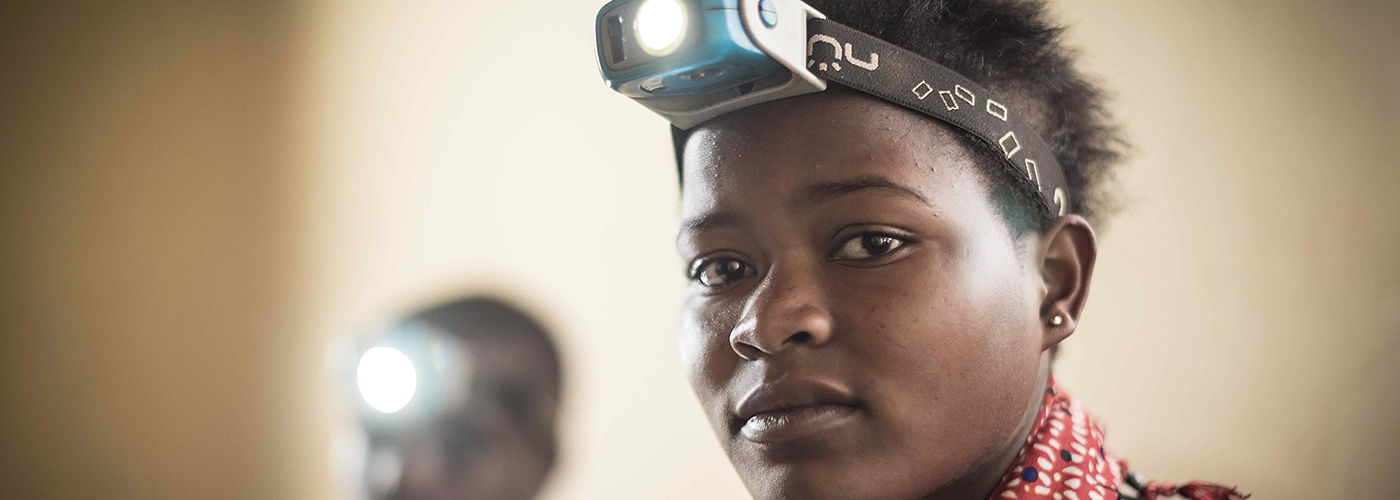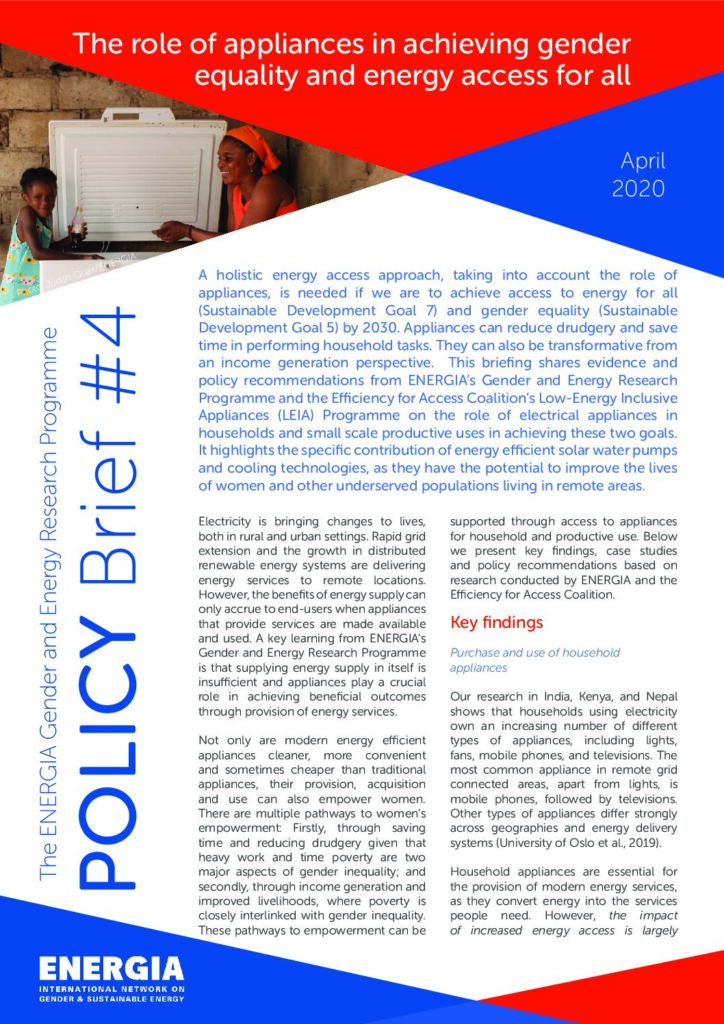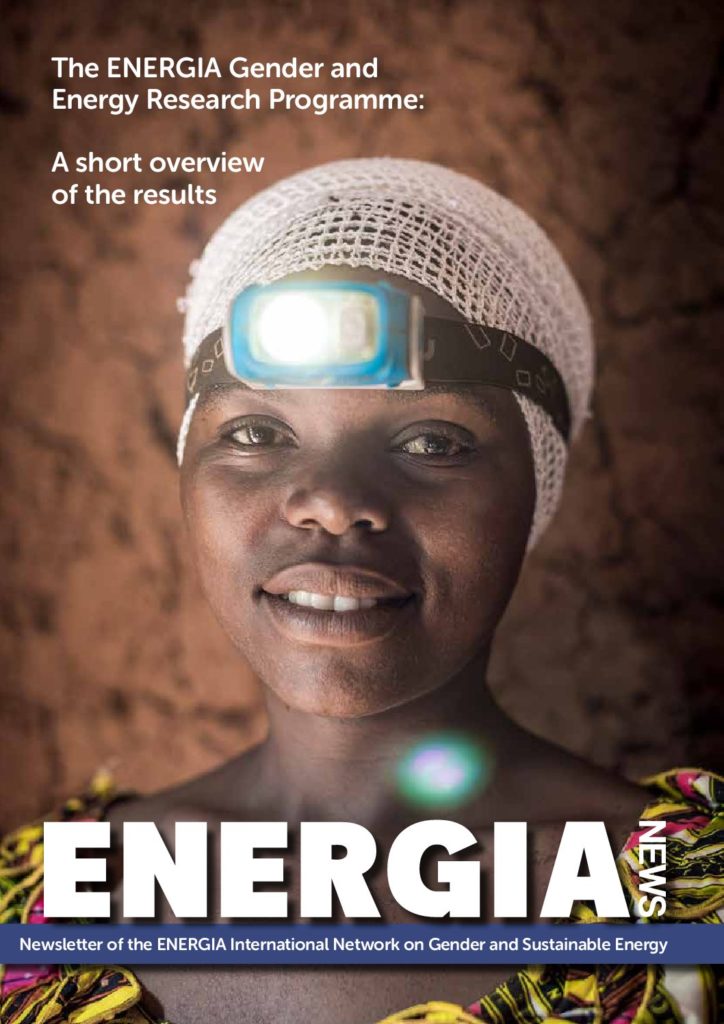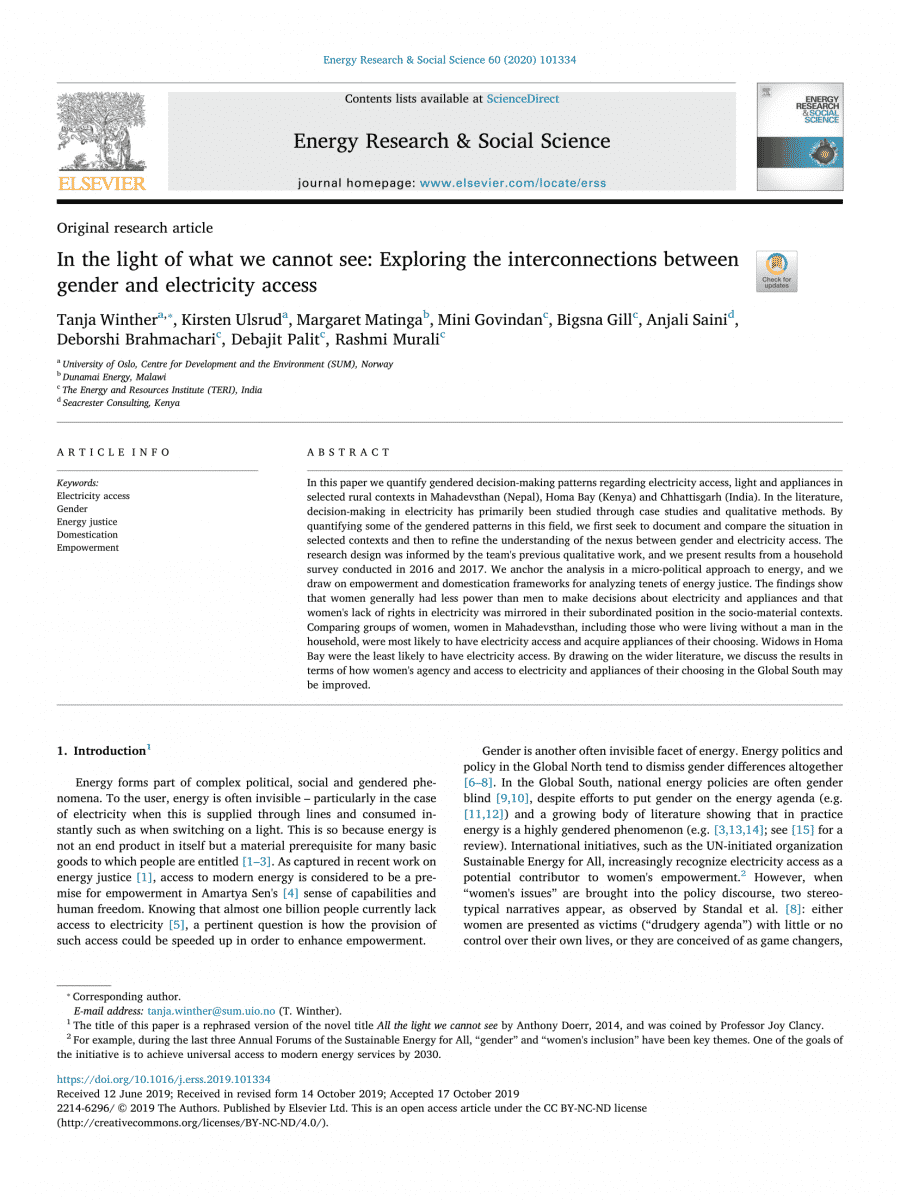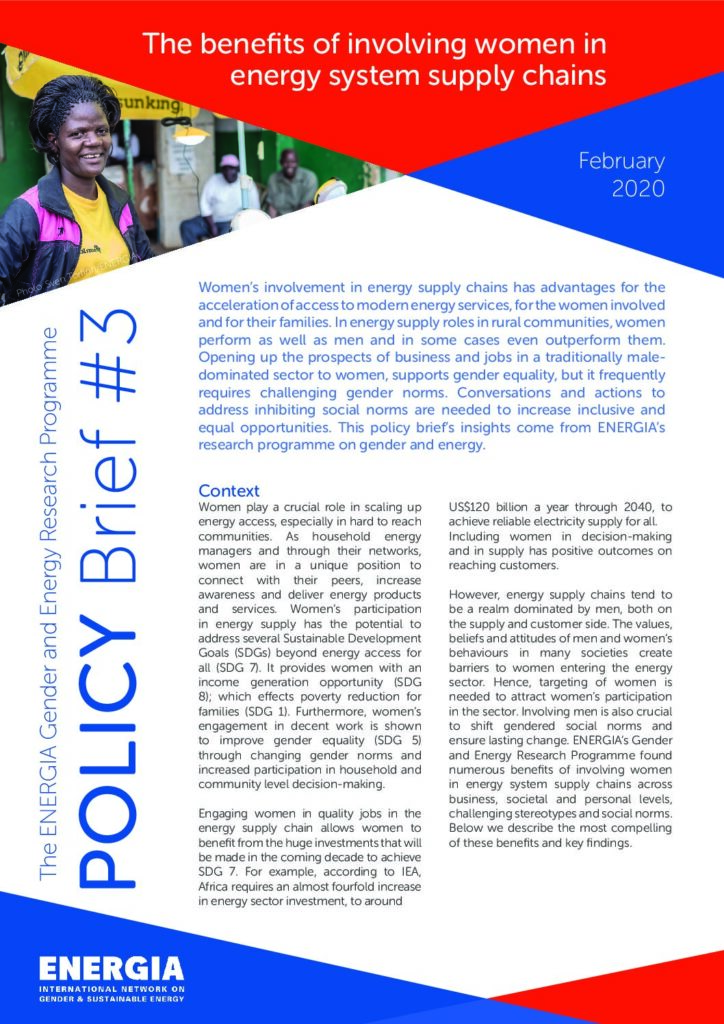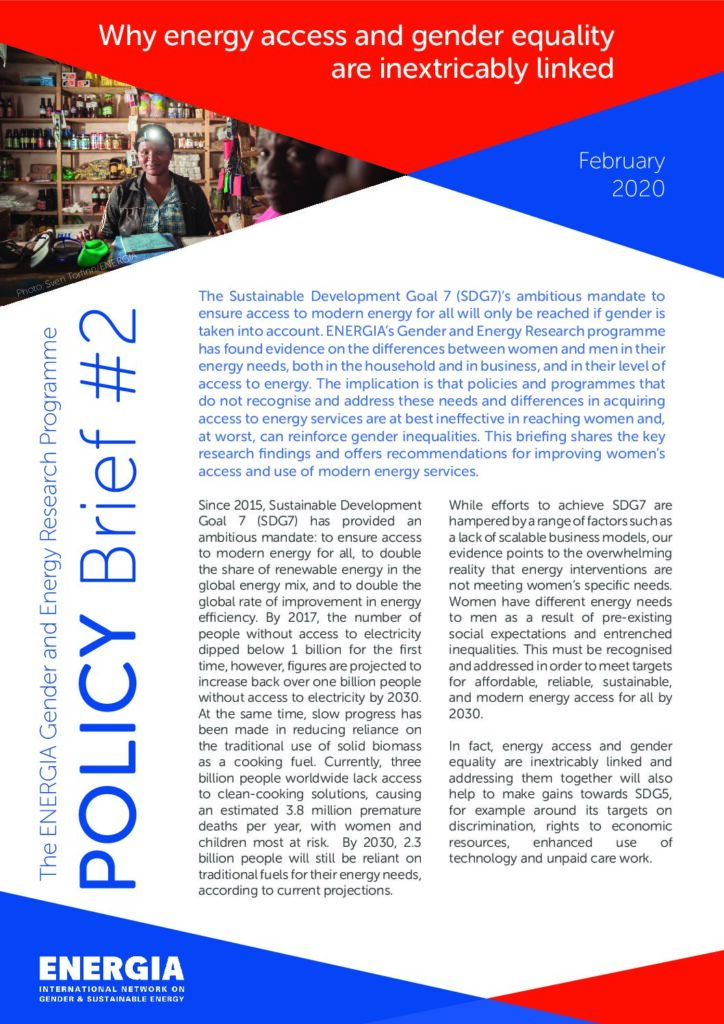Policy Brief: The role of appliances in achieving gender equality and energy access for all
A holistic energy access approach, taking into account the role of appliances, is needed if we are to achieve access to energy for all (Sustainable Development Goal 7) and gender equality (Sustainable Development Goal 5) by 2030. Appliances can reduce drudgery and save time in performing household tasks. They can also be transformative from an…
The ENERGIA Gender and Energy Research Programme: A short overview of the results
In this ENERGIA News you will find evidence and highlights from the Gender and Energy Research programme, in which ENERGIA has worked, since 2014, with nine teams of researchers in 12 countries. This research programme has built an evidence base to support informed policy making to decrease gender inequalities in energy access and benefits of…
In the light of what we cannot see: Exploring the interconnections between gender and electricity access
In this paper we quantify gendered decision-making patterns regarding electricity access, light and appliances in selected rural contexts in Mahadevsthan (Nepal), Homa Bay (Kenya) and Chhattisgarh (India). In the literature, decision-making in electricity has primarily been studied through case studies and qualitative methods. By quantifying some of the gendered patterns in this field, we first…
Policy Brief: The benefits of involving women in energy system supply chains
Women’s involvement in energy supply chains has advantages for the acceleration of access to modern energy services, for the women involved and for their families. In energy supply roles in rural communities, women perform as well as men and in some cases even outperform them. Opening up the prospects of business and jobs in a…
Policy Brief: Why energy access and gender equality are inextricably linked
The Sustainable Development Goal 7 (SDG7)’s ambitious mandate to ensure access to modern energy for all will only be reached if gender is taken into account. ENERGIA’s Gender and Energy Research programme has found evidence on the differences between women and men in their energy needs, both in the household and in business, and in…


